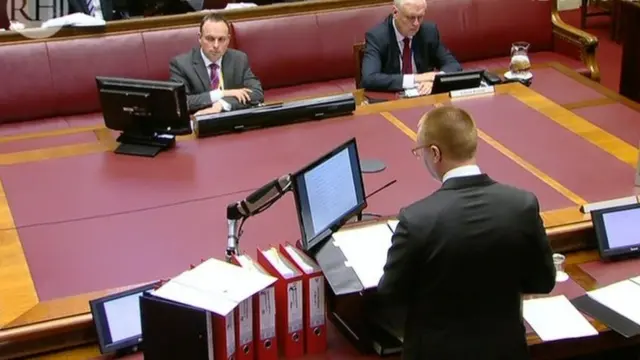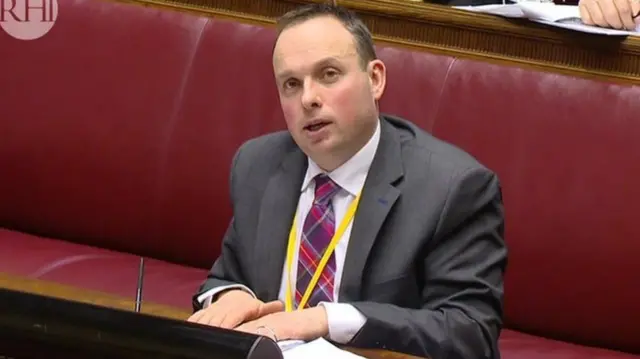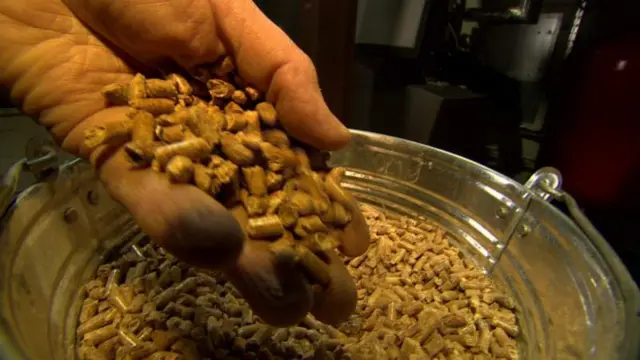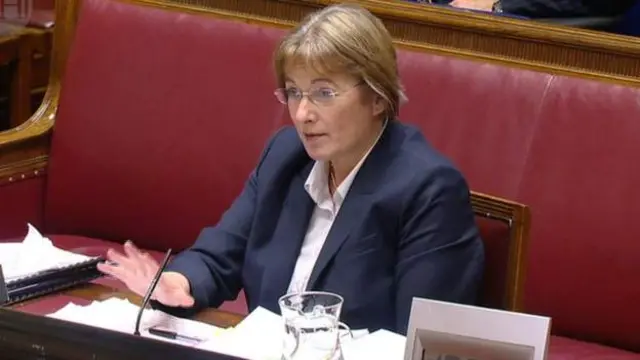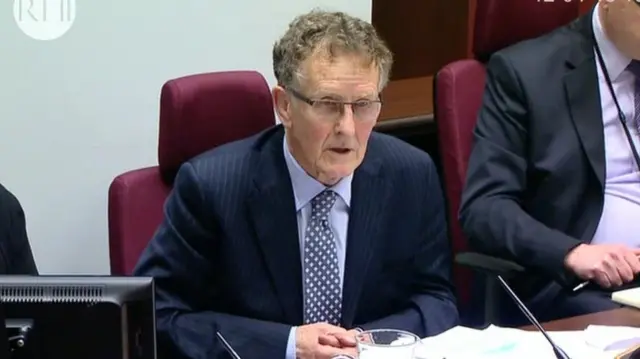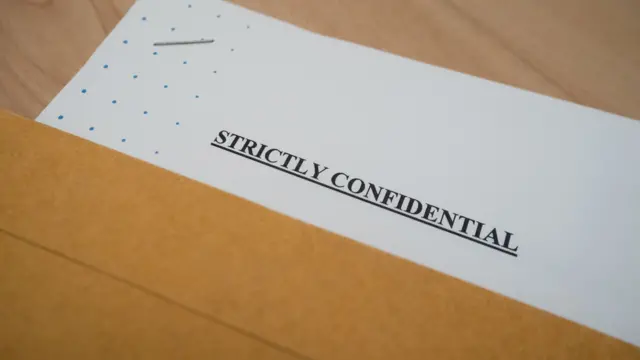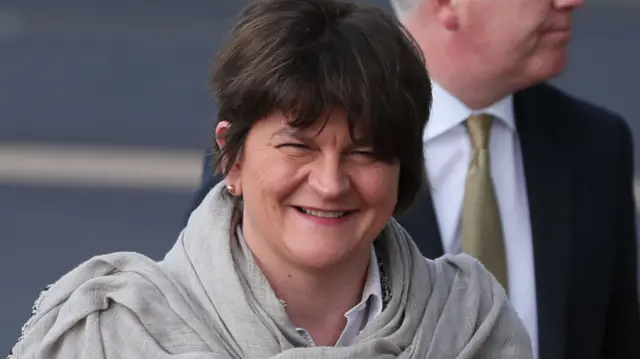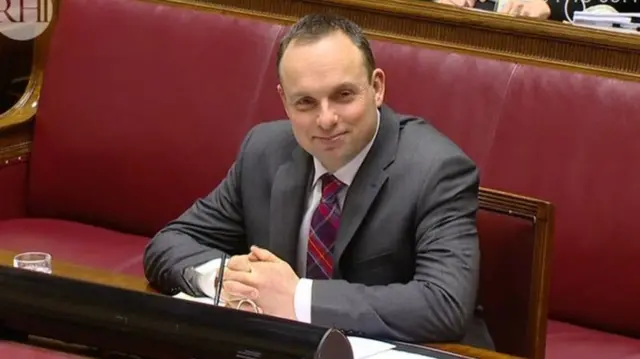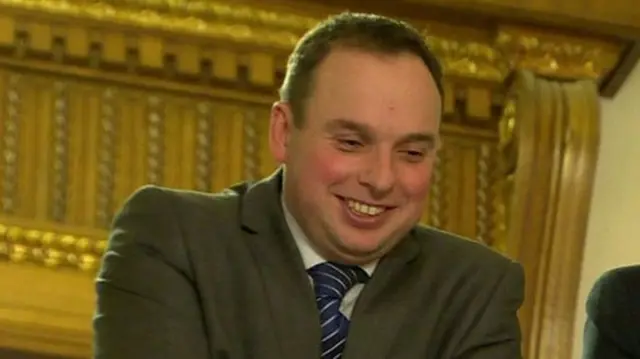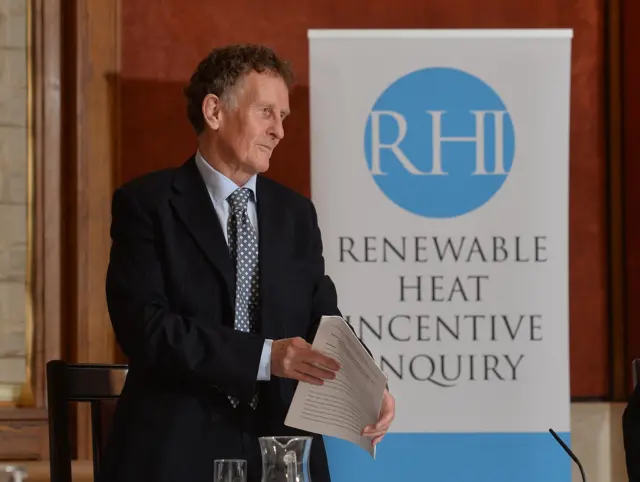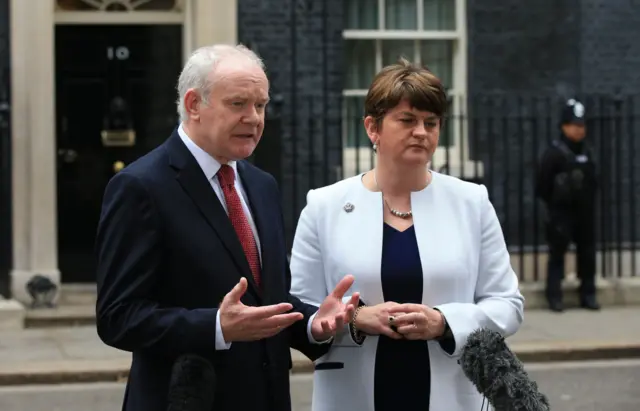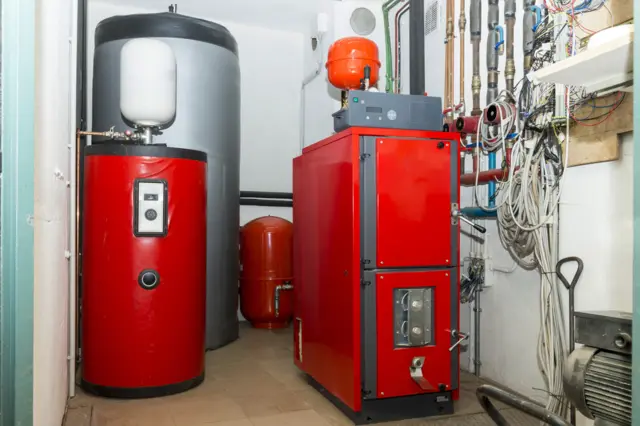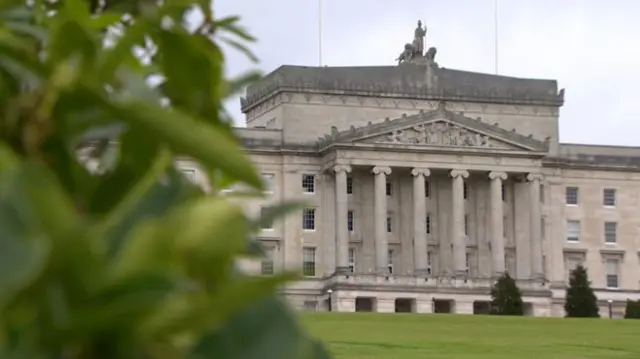'Highly unlikely that I was given RHI details'published at 13:06 BST 12 April 2018
According to Mrs Hepper, she went through the submission paragraph by paragraph with Mrs Foster and went through the key figures about the RHI scheme in detail.
The figure would've shown that the subsidy model that was eventually chose for the initiative was not the best option, working out much more expensive by at least a couple of hundred-million pounds.
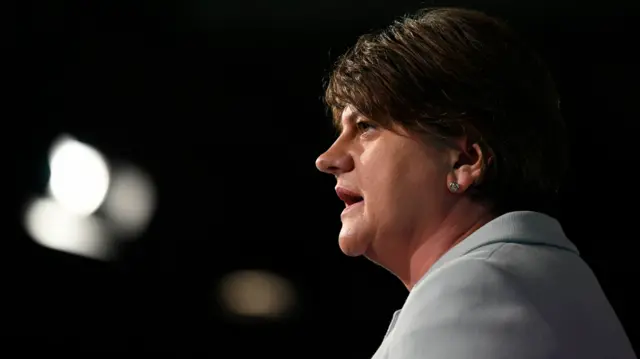 Image source, EPA
Image source, EPAMrs Foster's account is different - she says in her written statement to the inquiry that it's "highly unlikely that she took me through it in detail".
Dr Crawford says that if Mrs Heppr's account is accurate she "would've been asked to redraft the submission so that what she was saying verbally... was being reflected" in the paper.
